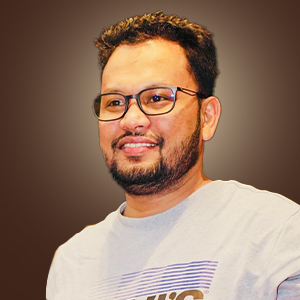Developing Resilient HR Strategies to Handle Future Healthcare Crises
 Anjan engaged in a conversation with the Higher Education Review magazine for answering queries on the development of resilient HR strategies to handle future healthcare crisis. He has experience in leading a team of the entire HR function and motivating the growth path of all the employees inside the organization. He can provide guidance and direction to hiring managers, recruiters, and recruiting managers on TA processes and operations. Anjan can understand issues, design appropriate solutions and resolve conflicting situations in a complex environment with both internal and external key stakeholders.
Anjan engaged in a conversation with the Higher Education Review magazine for answering queries on the development of resilient HR strategies to handle future healthcare crisis. He has experience in leading a team of the entire HR function and motivating the growth path of all the employees inside the organization. He can provide guidance and direction to hiring managers, recruiters, and recruiting managers on TA processes and operations. Anjan can understand issues, design appropriate solutions and resolve conflicting situations in a complex environment with both internal and external key stakeholders.
In your view, how have effective healthcare crisis policies directly impacted the safety and productivity of the workforce within the organization?
During COVID-19, talent acquisition became a major challenge for corporations across the world. Especially for healthcare organizations, all possible safety protocols needed to be measured. It includes implementing policies like social distancing, mask wearing and other things in order to restrict the spread of the disease at the workplace. Vaccination programs were also executed by healthcare organizations for all employees. Added to this, there are several other health parameters which are related to screening or testing. On the other hand, there also needs to be mental health support programs that are supervised by professionals who continuously speak with employees for assessment of their mental health. In case any of the family members of employees get infected, the employer is always kept in the loop and this provides a lot of mental support. Several programs were implemented in relation to the above aspects in order to make all employees educated about the safety protocols that need to be followed at the workplace.
How can organizations effectively navigate healthcare crises, embracing innovation and agile adaptation to evolving circumstances such as remote work and shifting health guidelines?
As a part of digital transformation, adopting new technologies is very important. This is exactly what healthcare organizations are focusing right now with regards to the wellbeing of the patients and the employees together. Here, using digital tools or platform through which remote communication can be accurately established is being of great help. Any kinds of projects that are being currently run is with the use of digital tools and platforms and this has boosted the operational efficiency of organizations. Apart from this, any kid of changes that are required in the organization, those are also being accomplished using modern technologies. A disciplinary management committee has been formed by many organizations that include the core management and seasoned professionals in order to look after the above matters.
Why is effective risk management and contingency planning crucial for anticipating potential challenges and mitigating their impact on the workforce?
Primarily we have to identify all the risks that an organization is looking at. In this regard, the term that comes into play is effective risk management which can take place only after identification of potential threats. First aspect that an organization has to concentrate on is regular risk assessments that helps identify all possible vulnerabilities within the organization. A team needs to be built for the purpose of scenario analysis which will help in understanding the level of impact that a potential risk might have on the organization. Moving on, plans also must be made on how to minimize disruption by means of contingency planning and ensuring that remedies are in place in case of any risks are occurred. Another business aspect that needs to looked upon while speaking about minimizing disruption is the business continuity plan. Here, the safety and security of the employees becomes an important factor because once this is in place, an organization can be sure that there is enough manpower to execute contingency plans in case of risk occurrence.
How can HR strategies effectively balance the need for employee privacy with the implementation of supportive mental health initiatives in the workplace?
First we have to check on the amount of assurance an organization is able to provide in terms of protection of employee health data. Secondly, contingency plans must always be in place that needs to be promptly executed in case employees are facing any kind of health issues. This is the confidential data protection policy that an organization should have. The access to this information is there only with the HR department. This is why HR professionals must always be trained on the measures that need to be taken in order to ensure none of the sensitive employee or company data is leaked or misused. Maintaining the confidentiality is utmost important for which training on ethical HR methods is very necessary.

